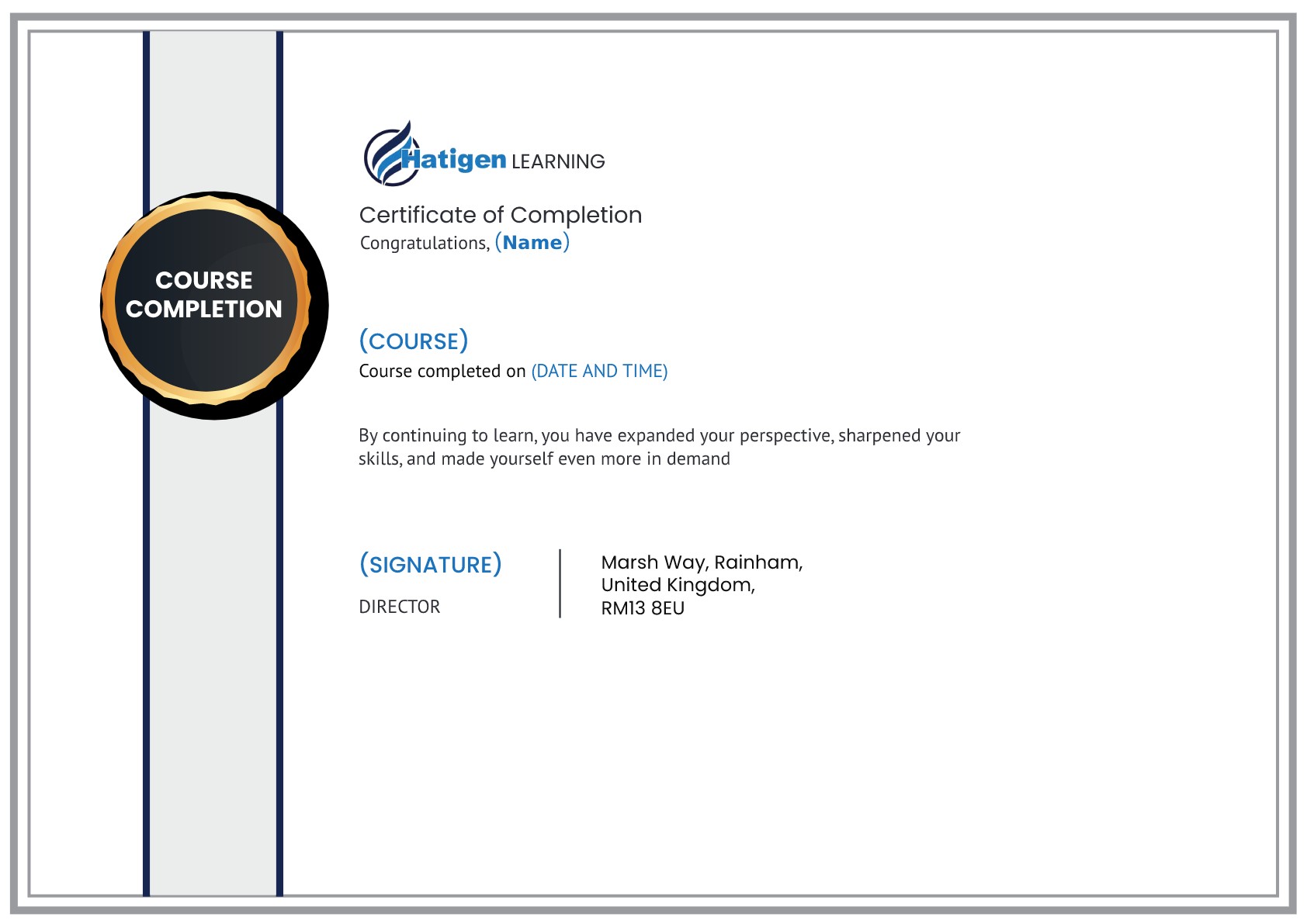Machine Learning with TensorFlow Course Online – Overview
In this intro to machine learning with TensorFlow course, you will learn the basic foundational concepts of machine learning algorithms, data cleaning, supervised learning, and unsupervised learning. Adding to this, you’ll gain hands-on experience with the TensorFlow framework with the practical teaching approach from our well-experienced trainers. Also, you will learn to apply your coding skills to various exercises and projects involved in machine learning with TensorFlow.
Intro to Machine Learning with TensorFlow Training – Key Features
- Trusted content.
- Re-learn for free anytime in a year.
- Rigorous assignments and assessments.
- Learn at your own pace.
- Mandatory feedback sessions.
- Mock-interviews.
- Hands-on real-time experience.
- Free mentorship.
- Live chat for instant solutions.
- Job ready employees post-training.
- End-to-end training.
- Download the certificate after the course.
Machine Learning with TensorFlow Online Course – Benefits
Machine learning with TensorFlow online course enables you to learn the fundamental of machine learning concepts and get job-ready skills with hands-on experience.
Designation
Annual Salary
Hiring Companies
Job Wise Benefits
Designation
Machine Learning Engineer
UK

Hiring Companies

Machine Learning with TensorFlow Course – Training Options
TensorFlow Machine Learning – Curriculum
Eligibility
Students who have knowledge or experience in python programming and planning to expand their skills in machine learning with TensorFlow can get into this course – Intro to Machine Learning with Tensor Flow and build their career in the machine learning domain.
Pre-requisites
If you want to do the best in this Intro to Machine Learning with TensorFlow Course Online, then it is suggested that you must have an intermediate knowledge of programming in Python. Adding to this, you should also have a basic knowledge of statistics and probability.
Course Content
-
1.001 Learn the difference between Regression and Classification
-
1.002 Train a Linear Regression model to predict values
-
1.003 Learn to predict states using Logistic Regression
-
2.001 Learn the definition of a perceptron as a building block for neural networks, and the perceptron algorithm for classification.
-
3.001 Train Decision Trees to predict states
-
3.002 Use Entropy to build decision trees, recursively
-
4.001 Learn Bayes’ rule, and apply it to predict cases of spam messages using the Naive Bayes algorithm.
-
4.002 Train models using Bayesian Learning
-
4.003 Complete an exercise that uses Bayesian Learning for natural language processing
-
5.001 Learn to train a Support Vector Machines to separate data,linearly
-
5.002 Use Kernel Methods in order to train SVMs on data that is not linearly separable
-
6.001 Build data visualizations for quantitative and categorical data.
-
6.002 Create pie, bar, line, scatter, histogram, and boxplot charts.
-
6.003 Build professional presentations.
-
7.001 Learn about different metrics to measure model success.
-
7.002 Calculate accuracy, precision, and recall to measure the performance of your models.
-
6.001 Train and test models with Scikit-learn.
-
6.002 Choose the best model using evaluation techniques like cross-validation and grid search.
-
1.001 Learn the foundations of deep learning and neural networks.
-
1.002 Implement gradient descent and backpropagation in Python.
-
2.001 Implement gradient descent using NumPy matrix multiplication.
-
3.001 Learn several techniques to effectively train a neural network.
-
3.002 Prevent overfitting of training data and learn best practices for minimizing the error of a network.
-
4.001 Learn how to use PyTorch for building deep learning models.
-
1.001 Learn the basics of clustering data
-
1.002 Cluster data with the K-means algorithm
-
2.001 Cluster data with Single Linkage Clustering.
-
2.002 Cluster data with DBSCAN, a clustering method that captures the insight that clusters are dense group of points
-
3.001 Cluster data with Gaussian Mixture Models
-
3.002 Optimize Gaussian Mixture Models with and Expectation Maximization
-
4.001 Reduce the dimensionality of the data using Principal
-
4.002 Component Analysis and Independent Component Analysisv
Machine Learning with TensorFlow Online Course – FAQs
Intro to machine learning with TensorFlow online course allows you to grasp good knowledge in machine learning. As there are countless opportunities for machine learning engineers in the current market, you’ll be on the highly-demanded career path. However, if you have knowledge of python or working as a python programmer, then this will be the best course to explore the world of machine learning with basic statistics and mathematical knowledge.
If you want to develop your career in the machine learning domain, then it is necessary that you should have coding knowledge as well. When you will be building ML models, you need coding skills for parameter tuning, data management, parsing results, etc. along with your machine learning concepts.
If you do not meet the basic requirement of this Intro to machine learning with TensorFlow course online, then you should first learn python programming and gain intermediate knowledge. Also, get to know the basic concepts of probability and mathematical statistics as they are a must in the machine learning domain. Apart from this, you can also learn core knowledge in machine learning with our Machine Learning Course Online.

Reviews
Hatigen IT Services gives a good knowledge in present technology a good platform to learn advance languages
Edward
I like the courses offered with the better facilities provided
Teresa
I've had great experience with Hatigen and the training delivered was great
Ben
First of all i would like to take this opportunity to thanks the instructors the course is well structured and explained the foundations with real world problems with easy to understand the concepts
Winifred
